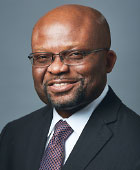When Laws Collide With Responsible Patient Care
Every so often physicians are confronted with the serious dilemma of navigating medical situations in which ethical practice is deemed unlawful.
Florida’s physician “gag” law, the Firearm Owners’ Privacy Act (FOPA) of 2011, required health care practitioners to “respect a patient’s right to privacy” and to “refrain from making a written inquiry or asking questions concerning the ownership of a firearm or ammunition by the patient or by a family member of the patient or the presence of a firearm in a private home or other domicile of the patient or a family member of the patient.” Psychiatrists who broke this law faced the risk of suspension, outright loss of their medical license, and/or significant financial penalties.
The law flew in the face of scientific data indicating that firearms are the prime mode of suicide in the United States: The Centers for Disease Control and Prevention reports that over half of deaths by suicide in this country involve the use of firearms. As a result, psychiatrists are trained to routinely ask patients about access to firearms in psychiatric assessments, especially patients who have depression or other relevant mental illnesses. In fact, not asking about guns in those circumstances could be considered unethical and could open up the possibility that the psychiatrist could be sued for malpractice. Therein lies the conflict.
Wisely, in 2017, the Florida law was ruled unconstitutional as it violated the First Amendment rights of physicians. But the damage was already done—a 2019 study showed that one year after the law was repealed, only 5% of surveyed physicians in Florida always talked to at-risk patients about gun safety, according to Melanie G. Hagen, M.D., et al. in the November 2019 Southern Medical Journal.
A more recent issue surrounds the Supreme Court’s Dobbs decision that overturned Roe v. Wade. As predicted, states have begun tightening laws around abortion and criminalizing its provision, including the prescription of medication to terminate a pregnancy. For example, in response to the FDA’s recent rule expanding access to mifepristone, Florida’s Agency for Healthcare Administration issued an alert to remind health care providers of the state laws that prohibit termination of pregnancy except in emergency situations. The alert also reminded providers that willful violation of the law could result in criminal penalties. However, waiting until a woman’s life is in danger—which would then qualify as an emergency situation—before terminating a pregnancy previously determined by a physician to pose a serious risk of morbidity or mortality to the woman could be unethical.
So, how should psychiatrists respond to situations in which laws enforce unethical practice? Section 3 of APA’s The Principles of Medical Ethics With Annotations Especially Applicable to Psychiatry states that a physician shall respect the law but also recognize a responsibility to seek changes in those requirements that are contrary to the best interests of patients. It further says:
“It would seem self-evident that a psychiatrist who is a lawbreaker might be ethically unsuited to practice his or her profession. When such illegal activities bear directly upon his or her practice, this would obviously be the case. However, in other instances, illegal activities such as those concerning the right to protest social injustices might not bear on either the image of the psychiatrist or the ability of the specific psychiatrist to treat his or her patient ethically and well. While no committee or board could offer prior assurance that any illegal activity would not be considered unethical, it is conceivable that an individual could violate a law without being guilty of professionally unethical behavior. Physicians lose no right of citizenship on entry into the profession of medicine.”
Thus, a physician who breaks the law while providing clinically justifiable service to patients cannot be accused of unethical practice. Still, despite the ethical injunction of Section 8 of the Code of Medical Ethics that a physician shall, while caring for a patient, regard responsibility to the patient as paramount, it would be foolhardy to recommend that psychiatrists willfully break laws that might curtail ethical practice and place their freedom or livelihood at risk. Perhaps the best recourse in these challenging situations is to hold dear Section 7’s admonition for physicians to recognize a responsibility to participate in activities contributing to the improvement of the community and the betterment of public health.
Psychiatrists as citizens and medical organizations, including APA, can band together with interested community organizations and advocacy groups to vigorously challenge laws that negatively impact patients’ dignity and respect, autonomy, and care. This fight should not be left to patients alone, some of whom are too vulnerable and/or lack the resources to defend themselves. Our commitment to individually and collectively stand with them is the least we can do. ■




